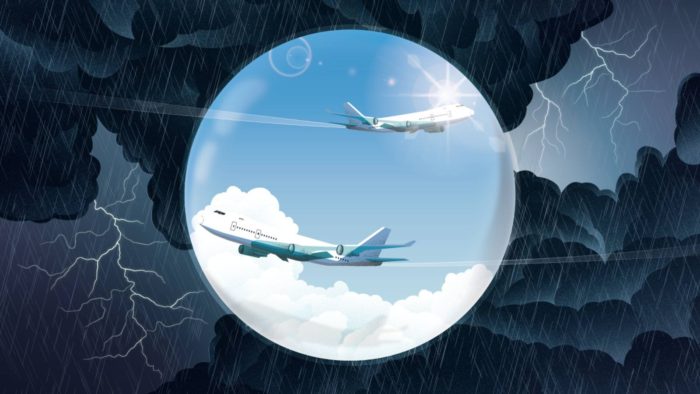Published in the Nikkei Asian Review 8/7/2020
To adapt Oscar Wilde, if there’s one thing worse than hordes of tourists everywhere, it’s no tourists anywhere. Such were my thoughts as my footsteps echoed through the deserted hallways of Narita Airport one evening in late June.
The lighting was dimmed as if for a funeral, and no refreshments were available except from the eerily glowing vending machines. However, I did get personal service from a cluster of masked and gloved immigration personnel who politely asked me why I was leaving Japan and warned that, given the circumstances, I might not be allowed back.
My flight to Europe was the only one scheduled, and I was nervous that it might yet be cancelled, as had happened twice already. In the end, the plane was about one third full.
Alcoholic drinks and tea and coffee were off the menu, and the only meal on offer for the twelve hour journey was a compressed wodge of pasta. The highlight was receiving an illicit cup of coffee from a friendly stewardess who was making some for the pilots.
At the other end, Schiphol Airport was just as empty. Searching for an exit that was not locked, I wandered the corridors like the last man on earth.
Is this what de-globalization looks like, I wondered. As Covid-19 recedes, economies are opening up, but international transport linkages are still in a state of dysfunction.
In many countries, government policy is a mess, with Britain at the forefront. After five months in Japan (8 Covid-19 deaths per million people), I find myself locked down in the UK (640 Covid deaths per million people) thanks to the recently introduced compulsory quarantine for inbound travellers. The penalty for non-compliance is a stiff fine of one thousand pounds.
There is some good news, though. British Prime Minister Boris Johnson’s government has approved travel by ‘air bridges’ — sometimes called ‘travel bubbles’ — to and from several dozen “low risk” countries, mainly European or small Britain-dependent islands in the Caribbean.
Such arrangements are driven by politics, not health concerns. As with bilateral trade agreements, reciprocity is the name of the game. Southern Europe needs the euros brought by north European tourists; it’s part of the financial glue that holds the eurozone together.
Despite Brexit, high-spending, hard-drinking British tourists are indispensable to countries like Spain. Fifteen million visits per year makes Spain by far the top destination for British tourists and the British by far the largest national group.
The reality is that Spain is by no means Covid-free and neither is Britain, but they have a shared interest in taking a certain amount of risk. It will be much more difficult for either to make deals with countries where the common interest is thin.
Something similar is happening in Asia, but with a heavy geopolitical flavour. Japan has eased travel restrictions with Australia, New Zealand, Thailand and Vietnam. In terms of infection risk, these are indeed some of the safest places in the world, but so are South Korea and Hong Kong and they are not included in the easing.
Australia and New Zealand are unofficial allies of Japan, and both are members of the Five Eyes intelligence-sharing group (the others being the US, the UK and Canada) that Japan would dearly like to join. Thailand is a vital off-shore production base for Japanese companies like Honda and Canon, and increasingly for small and medium scale enterprises.
Likewise, Vietnam has become a credible alternative to China for Japanese direct investment, with Komatsu and Nintendo amongst the companies shifting production there from its enormous neighbour.
Vietnam also happens to be a key source of labour for the domestic Japanese economy, which has been struggling with manpower shortages. The 400,000 Vietnamese workers in Japan comprise the second largest national group, just slightly fewer than the Chinese.
That takes us to the biggest issue of all. Chinese tourists have been the most visible manifestation of China’s rapidly expanding global footprint, with 160 million of them on the move in 2019. Which country will be the first to make a “travel bubble” deal with China? For a tourism-driven economy like Thailand’s, Chinese tourists account for about 5% of GDP, a significant amount to lose.
Even Japan, much less dependent on the spending of foreign visitors, had been expecting an increasing inflow of Chinese to meet the government’s ambitious target of 60 million tourists by 2030, compared with 34 million in 2019 and just five million at the turn of the century. In December last year, which now seems a lifetime away, Chief Cabinet Secretary Yoshihide Suga even announced a government initiative to subsidize the construction of 50 luxury hotels.
My guess is that Thailand will open up to tourists from China, and indeed Europe, as soon as possible. Japan, though, will use the pandemic as an excuse to downgrade its ambitions of becoming a tourism super-power and, in particular, to modify its open door policy towards mainland Chinese visitors.
The Covid crisis has massively accelerated many pre-existing trends, such as remote working, online shopping and cashless payments. Another one, of great geopolitical import, is suspicion of China. The horse-trading over ‘travel bubbles’ is a foretaste of the hard choices that countries will have to make about how they align themselves in an era of global fracture and superpower rivalry.
Nowhere will the stakes be higher than in East Asia.

